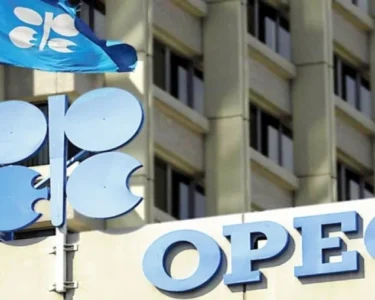The ongoing dispute between Equity Bank Uganda, Prism Construction, and the Ministry of Education and Sports (MoES) has grown beyond the confines of a simple commercial disagreement. What began as a straightforward loan and government contract has now evolved into a saga that exposes the fragile intersection between Uganda’s governance culture and its private financial sector. At stake is more than one businessman’s hotel or one bank’s loan portfolio. At stake is the credibility of Uganda’s credit system, investor confidence, and the broader economy’s ability to function on the basis of trust, contracts, and law.
At the centre of the storm is businessman Kennedy Losuk Lokule, who borrowed UGX 150 billion from Equity Bank to finance the development of the Emin Pasha Lake View Residence, a luxury property in Muyenga. Lokule, through his firm Prism Construction, also secured a government contract to build a technical college in Bushenyi under the MoES. That project was completed, but the Ministry has failed to pay Prism UGX 8.4 billion for work delivered. What should have been a routine payment for a public contract has now snowballed into a liquidity crisis, placing Lokule’s business empire under stress and leaving Equity Bank exposed to a massive non-performing loan.
In most economies, when a borrower defaults, a lender moves to enforce collateral—typically through foreclosure or auction. Equity Bank followed this textbook course of action, obtaining court approval to sell the Emin Pasha property and recover its funds. What makes this case extraordinary is the government’s response. Rather than settling its own contractual arrears with Prism, the Ugandan state has chosen to intervene politically. President Yoweri Museveni directed the Attorney General to halt the auction. Finance Minister Matia Kasaija and presidential advisor Odrek Rwabwogo added their voices, urging leniency for Lokule and pressuring Equity Bank to stay its hand.
This approach is not just inconsistent—it is dangerous. It signals that political discretion, not the rule of law, determines the outcome of commercial contracts in Uganda. Such interference undermines confidence in the judiciary, distorts credit markets, and blurs the line between public sector inefficiency and private sector accountability. The underlying fact remains: the government owes Prism UGX 8.4 billion. That debt has been outstanding since 2021. Had it been paid on time, Lokule’s loan would likely still be performing, and Emin Pasha would not be facing foreclosure.
The wider implications cannot be ignored. Across ministries and agencies, the government sits on trillions of shillings in arrears owed to contractors and service providers. Instead of establishing a systematic and transparent framework for clearing these obligations, Treasury has often resorted to reactive, ad hoc bailouts. Politically connected firms are prioritised, while those without influence languish in financial distress. This practice not only breeds rent-seeking but also erodes faith in procurement processes. The implicit message is that businesses must lobby politically, not just deliver value, if they want to be paid.
For the banking sector, the consequences are stark. Loans are funded by depositors’ savings, not abstract pools of money. When government pressures a bank to shield a defaulting borrower rather than honouring its arrears, it is effectively shifting the cost of its inefficiency onto savers, shareholders, and future borrowers. This undermines financial discipline and places the health of the credit system at risk.
Already, lenders in Uganda price in high risk premiums due to legal unpredictability and bureaucratic inefficiencies. If court-sanctioned foreclosures can be blocked by political fiat, banks will logically tighten credit or raise interest rates to protect themselves. That reduces the flow of affordable credit to legitimate businesses and households, punishing prudent borrowers while rewarding those with political cover.
The government may argue that it is acting to preserve economic assets or protect a local investor. But this reasoning fails to consider the ripple effects on the banking sector. Once investors and financial institutions lose confidence in the sanctity of contracts, the cost of borrowing will rise for everyone. Uganda’s international credit rating, investor appetite, and long-term competitiveness could all suffer.
The solution is not complicated. If Prism Construction has a verified claim against the Ministry of Education, then the state should settle its arrears—urgently. Paying the UGX 8.4 billion owed would resolve the liquidity crunch without undermining the rule of law or the operations of a private bank. Forcing Equity Bank to suspend its rights under pressure only masks the problem, while leaving the underlying dysfunction untouched.
What Uganda must learn from this episode is clear. Sustainable economic growth depends on three fundamentals: respecting contracts, honouring obligations, and insulating commercial processes from political interference. When these principles are abandoned, markets lose discipline, rent-seeking thrives, and both domestic and foreign investors think twice before committing capital.
In the long run, the government must take concrete steps to restore credibility. That means publishing a transparent framework for verifying and settling arrears, setting binding timelines for payments, and empowering institutions like the Auditor General and Parliament to hold ministries accountable. More importantly, political actors must resist the temptation to interfere with judicial and contractual processes whenever it is convenient.
The Emin Pasha saga is more than a dispute between a businessman and his bank. It is a test of Uganda’s commitment to building a rules-based economy. If handled poorly, it will deepen mistrust, tighten credit, and weaken the very institutions that underpin private sector growth. But if government accepts responsibility, honours its debts, and steps back from undue interference, it could set a precedent that strengthens both governance and finance.
Let businesses succeed or fail on their own merit—not on political patronage or state neglect. Anything less risks turning Uganda’s economy into a game where prudence is punished and connections are rewarded. And that is a cost the country cannot afford.






